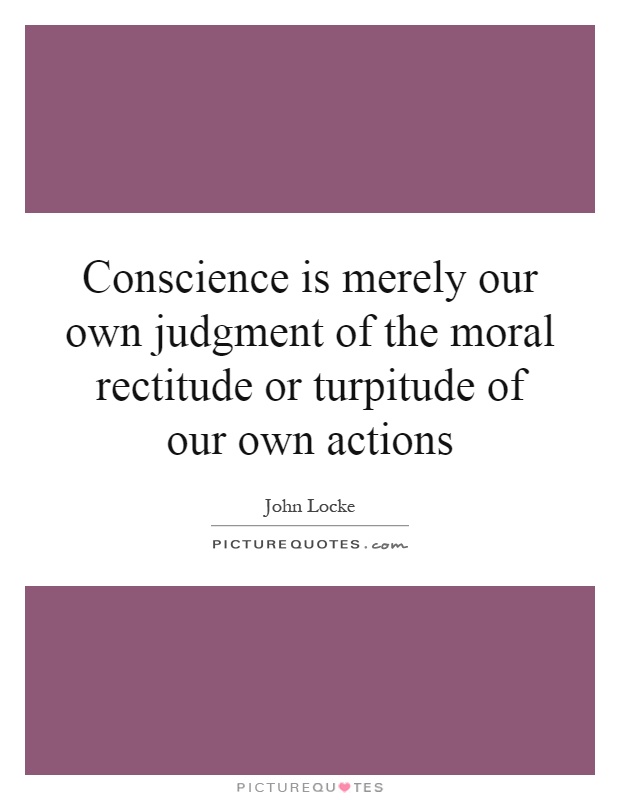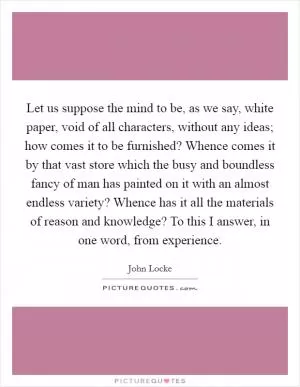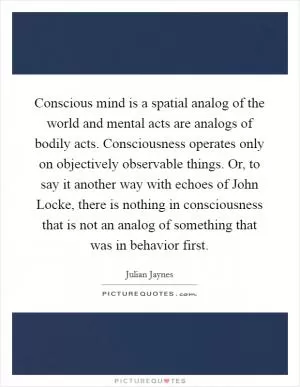Conscience is merely our own judgment of the moral rectitude or turpitude of our own actions

Conscience is merely our own judgment of the moral rectitude or turpitude of our own actions
John Locke, a prominent philosopher of the Enlightenment era, believed that conscience is a crucial aspect of human nature that guides our moral decision-making. In his work, Locke argued that conscience is not an innate sense of right and wrong, but rather a product of our own judgment of the moral rectitude or turpitude of our actions.Locke believed that individuals possess the ability to reason and reflect on their actions, allowing them to make moral judgments based on their own understanding of what is right and wrong. He argued that conscience is not a fixed set of moral principles imposed on us from external sources, but rather a subjective evaluation of our own behavior. According to Locke, conscience is shaped by our experiences, beliefs, and values, and can vary from person to person.
Locke's view of conscience as a product of individual judgment has important implications for moral philosophy. It suggests that moral truths are not absolute and universal, but rather contingent on individual perspectives and circumstances. This relativistic approach to morality challenges traditional notions of right and wrong, and emphasizes the importance of personal autonomy and self-reflection in ethical decision-making.
Locke's emphasis on the role of conscience in moral judgment also highlights the importance of self-awareness and introspection in ethical reasoning. By encouraging individuals to critically evaluate their own actions and beliefs, Locke believed that they could develop a more nuanced understanding of morality and make more informed ethical choices.
Overall, Locke's perspective on conscience as our own judgment of the moral rectitude or turpitude of our actions underscores the complexity and subjectivity of moral reasoning. It challenges us to question traditional moral norms and consider the role of individual autonomy and self-reflection in shaping our ethical beliefs.












 Friendship Quotes
Friendship Quotes Love Quotes
Love Quotes Life Quotes
Life Quotes Funny Quotes
Funny Quotes Motivational Quotes
Motivational Quotes Inspirational Quotes
Inspirational Quotes